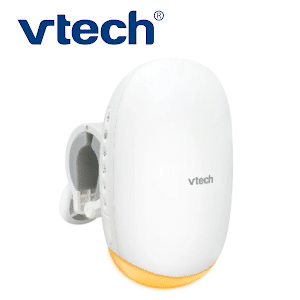Flu Vaccine in Pregnancy: Evidence-Based Risks and Benefits
Description
The flu is a contagious disease caused by the influenza virus. In most healthy adults, flu symptoms are typically mild and resolve within about a week. However, during pregnancy, the body’s heightened inflammatory response can increase the risk of complications. To reduce these risks and provide passive immunity to babies, healthcare professionals recommend that pregnant women receive the flu vaccine during flu season. Deciding whether to get vaccinated during pregnancy is a challenging task, as it involves weighing all of the potential risks and benefits. Additionally, you have choices regarding the type of flu vaccine and the timing of administration. This episode reviews the research and considerations for making an informed decision about the flu vaccine during pregnancy.
Listen Now
This episode is made possible with support from our sponsors. I appreciate your support for the brands that help power this podcast.
 </figure>
</figure>The VTech V-Hush Stroller Rocker is a portable device that features a mechanical rocking mechanism to gently rock your baby’s crib or stroller to promote better sleep on the go. Check out the VTech V-Hush Stroller Rocker here.
 </figure>
</figure>The Pregnancy Survival Kit from 8 Sheep Organics includes a set of four handcrafted products that help with common pregnancy pains like pregnancy insomnia, restless legs, lower back and hip pains, leg cramps, swollen and achy legs and feet, and stretch marks. All 8 Sheep products come with a 100-day Happiness Guarantee. You can try it completely risk-free for 100 days! Click here to save 10%.
Become a Pregnancy Podcast Premium member or log in to access all articles and episodes ad-free.
<form action="https://pregnancypodcast.com/login/" class="mepr-form" id="mepr_loginform" method="post" name="mepr_loginform">
<label for="user_login">Username or E-mail</label>
<input id="user_login" name="log" type="text" value="" />
<label for="user_pass">Password</label>
<input id="user_pass" name="pwd" type="password" value="" />
<button class="button mp-hide-pw hide-if-no-js" type="button">
</button>
<label><input id="rememberme" name="rememberme" type="checkbox" value="forever" /> Remember Me</label>
<input class="button-primary mepr-share-button " id="wp-submit" name="wp-submit" type="submit" value="Log In" />
<input name="redirect_to" type="hidden" value="/feed/" />
<input name="mepr_process_login_form" type="hidden" value="true" />
<input name="mepr_is_login_page" type="hidden" value="false" />
</form>
Article and Resources
Vaccine Basics
Vaccines have been in use since the 1790s, beginning with the development of the smallpox vaccine. Let’s first cover some basics to better understand how vaccines work, their risks, and their benefits.
What is a Vaccine?
Traditionally, vaccines use a weakened or inactivated version of a disease-causing microorganism or its components, such as toxins or surface proteins. When given, typically through an injection, vaccines trigger your immune system to produce antibodies against the disease without causing illness. Essentially, the vaccine teaches your body to recognize and fight the disease if you encounter it in the future. In some cases, immunity lasts a lifetime. In others, booster shots may be necessary to maintain protection.
Types of Vaccines
Different types of vaccines employ various methods to stimulate the immune system. Inactivated vaccines, like those for the flu, use microorganisms that have been killed through heat, radiation, or chemicals. There are also attenuated vaccines, such as the live attenuated nasal spray for the flu, which contain live but weakened microorganisms. These are strong enough to trigger an immune response but not enough to cause illness. Toxoid vaccines, like Tdap, use inactivated toxins from bacteria. Subunit vaccines, like the HPV vaccine, utilize specific proteins or fragments of the pathogen to stimulate an immune response. mRNA vaccines, a relatively new technology used in COVID-19 vaccines, work differently. Instead of using part of the virus or bacteria, these vaccines instruct your cells to make a protein that triggers an immune response. This teaches your immune system to recognize and fight the virus if you are exposed to it in the future.
Vaccine Ingredients
Vaccines often contain additional ingredients to ensure safety and effectiveness. Adjuvants, such as aluminum salts, help boost the immune response to the vaccine. Stabilizers maintain the vaccine’s potency during storage and transport. Preservatives in multidose vials prevent contamination. Thimerosal, a mercury-containing preservative, is in some multidose vaccines. Lipid nanoparticles (tiny fat particles) are in mRNA vaccines to protect the fragile mRNA and help it enter your cells. Other vaccines may contain trace amounts of antibiotics to prevent bacterial growth, as well as formaldehyde to inactivate toxins or kill viruses and bacteria during the production process. If the virus grows in eggs, as is the case for certain flu vaccines, the final product contains traces of egg protein.
How Immunity Works
Individual immunity occurs when a single person develops immunity after receiving a vaccine. Passive immunity happens when a pregnant mother passes antibodies to her baby through the placenta or later through breast milk, providing the baby with temporary protection. The passive immunity a baby receives in utero is a significant driver of recommending vaccines during pregnancy. Herd immunity occurs when a significant portion of the population is vaccinated, thereby reducing the spread of disease. Herd immunity is crucial to protect individuals who cannot get vaccinated, such as those with compromised immune systems, allergies to vaccine ingredients, or babies too young to be vaccinated.
Evaluating Vaccines
I follow a systematic approach and conduct thorough research when evaluating any vaccine. I ask several key questions:
- What are the risks of the illness the vaccine is targeting?
- What is the history of the vaccine?
- What ingredients are in the vaccine?
- How effective is it?
- What are the risks and benefits?
In addition to these general questions, I also consider personal factors such as my current health status, the likelihood of exposure, where I live, places I may travel to, and the time of year. Answering these questions requires a significant amount of research and critical thinking.
The Controversy Surrounding Vaccines
Some professionals dedicate their careers to researching and studying the safety and efficacy of vaccines. Vaccines are a complex, controversial topic that many people feel very strongly about. As a result, researching vaccines is a challenging endeavor. It is easy to come across information that appears unbiased but may ultimately push a pro- or anti-vaccine agenda. This episode aims to provide an objective overview of the evidence, enabling you to make an informed decision.
The Role





